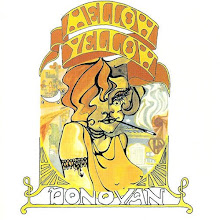White Christmas
Funny, I don't seem as all-consumed with hate as usual. Uncharacteristically tolerant of screaming
When my sisters and I were little, my mother spent much of her life worrying that we might meet untimely deaths at any moment. One thing which provided temporary comfort from the constant fear was superstition. My mother had learned the power of a good superstition from her mother, who died young because "the good die young." Sassiness toward my mother always brought cries of, "I never would have talked to my mother that way! I was glad to have a mother. You'll be sorry when I'm gone."
My mother utilized her many persuasive qualities to the fullest. I learned early on not only that the good die young, but that death comes in threes, that black cats, or rather, cats in general, are to be feared and avoided, and that knocking on wood is a necessity if you want to keep evil and disease from overtaking your proud pronouncements of good fortune.
One rule that served a variety of purposes was that we must pick up fallen pennies if we came upon them on the sidewalk. As children, my sisters and I learned that we must seize the fallen penny and deposit it into our left shoe without delay in order to receive the good luck. Not to pick up the coin would be unthinkable and would reveal a hideous disregard for the value of money as well as an unthinkable disrespect for hard work. The cry, "I see a penny!" would send us all racing for the coin, pushing each other out of the way, falling, pretty dresses flying, skinning our hands and knees, and one triumphant girl would rise up with the spoils. Of course, no greed or hate rose up in us. Our mother kept that from happening. "Good heavens! I never would have talked to my sister that way! I was thankful to have a sister, and someday you will be, too!"
As for Christmas, it was definitely a time for giving in our household. Everybody was loaded at Christmas. For my mother, it was all-out war on the plodding nature of everyday life. This woman loved to party. It was Christmas punch, Manhattans, Martinis, champagne, beer, anything that packed a punch. This made the family Christmas Eve very interesting. Sixteen years old, I clung to the stairwell and drunkenly dragged my new Christmas clothes up to my room to try on for size. A relative suddenly appeared and threw himself on top of me on the bed, panting. We were a close family.
Today when I walk among the white people, crowded and bent over piles of bones in the stores, looking for the tasty one, the only one left that will make them happy, that will make their children love them, I will smile slightly.
I don't trust white people. And I should know. I grew up acting white, and I can tell you of its seductions, of all it offers. If you want to be "rich," be white. If you want "power," be white. If you want to be "attractive," be white. But be aware, all of these pleasures are false, and provide no lasting happiness.
The people had been taught to despise themselves because they were left with barren land and dry rivers. But they were wrong. It was the white people who had nothing; it was the white people who were suffering as thieves do, never able to forget that their pride was wrapped in something stolen, something that had never been, and could never be, theirs. The destroyers had tricked the white people as completely as they had fooled the Indians, and now only a few people understood how the filthy deception worked; only a few people knew that the lie was destroying the white people faster than it was destroying Indian people. But the effects were hidden, evident only in the sterility of their art, which continued to feed off the vitality of other cultures, and in the dissolution of their consciousness into dead objects: the plastic and neon, the concrete and steel. Hollow and lifeless as a witchery clay figure. And what little still remained to white people was shriveled like a seed hoarded too long, shrunken past its time, and split open now, to expose a fragile, pale leaf stem, perfectly formed and dead. -Leslie Marmon Silko, Ceremony
The dollar has replaced all the bullshit morals they [whites] say they have---give 'em enough, they'll kill their parents.
-Ice Cube, the GenX Reader
The dollar has replaced all the bullshit morals they [whites] say they have---give 'em enough, they'll kill their parents.
-Ice Cube, the GenX Reader



2 Comments:
Greed is blind to the color of people's skins!! Have you been in the Foot Locker on 125th street and Lenox Avenue in Harlem lately? And the fake bling is flying off of the street vendor's tables. Up here, all we want for Christmas is two gold-capped front teeth.
Thank you for your comment. I could feel that it woke me up, somehow, and yet...
It is very hard for me to fault people who have been oppressed solely because of the color of their skin for desiring the material possessions of the oppressor. Even if it is all worthless stuff, the oppressor set the bar. It is hard not to internalize the message that what we possess determines our value as people.
So when hiphop artists drive their huge SUV's that destroy the planet, well, we taught them well. When lyrics are violent and misogenistic? We taught them well.
Are American Indians the only "race" in the US that has not become "white"?
Post a Comment
<< Home